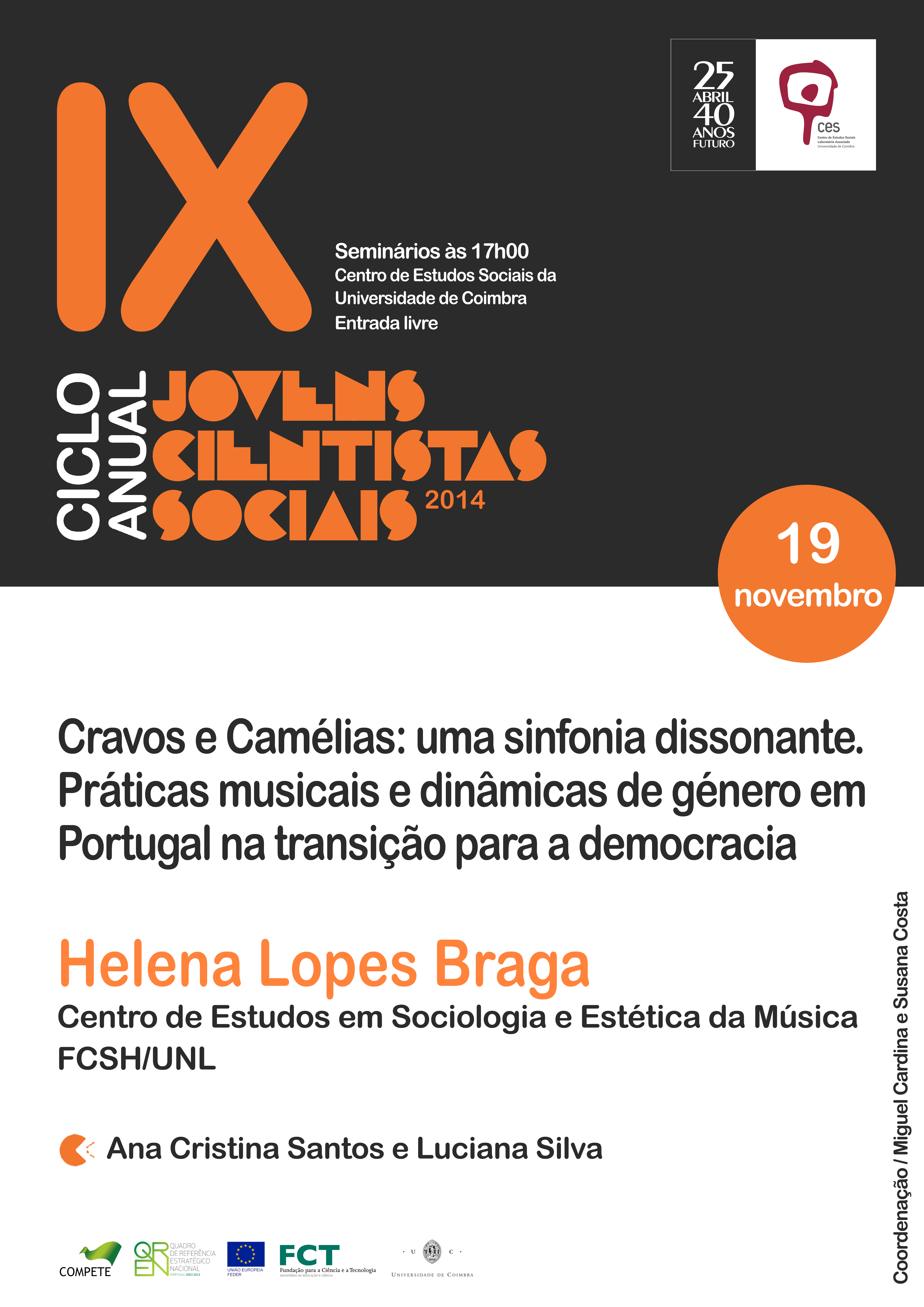Seminar | IX Annual Cycle Young Social Scientists
Carnations and Camellias: a dissonant symphony. Musical practices and gender dynamics in Portugal in the transition to democracy.
Helena Lopes Braga (Centro de Estudos em Sociologia e Estética da Música - FCSH/UNL)
November 19, 2014, 17h00
Room 2, CES-Coimbra
Comentary: Ana Cristina Santos and Luciana Silva
Abstract
Music is a social product, made by people, for people, being both structuring and structured by multiple layers of power dynamics that underlie any social fabric. The particularities lived in Portugal during the Estado Novo were therefore reflected onto the national musical life, its actors, and their respective discourses and practices. Feminisms, disintegrating some elites, blended into musical life through the social networks of some of their actors. Nevertheless, there has never been in Portugal, unlike what happened in other European countries, any association more or less formal of women musicians.
In the transition to democracy, what has changed? Has there been a significant change in how gender, as a tool of social management , has been articulating itself into discourses and musical practices? And today, what kind of gender dynamics, disseminated by these discourses and practices, can we find ?
By analyzing the dynamics of musical practices underlying gender, we can not underestimate all the Portuguese social context : the contingencies that continually obscured women, relegating them individually and collectively to oblivion, by gender binary reiterations, also reflected in later historiographical narratives and in how the academy itself continues to face the women's studies, gender studies, queer theory.
In this communication we will cover a few moments of the Portuguese twentieth century , using case studies and analysis of the press. Also I will include a brief comment to national musicological fabric, with regard to gender studies and music.
Bio note
Helena Lopes Braga, born in Braga, in 1983, she studied piano and singing at the Conservatório de Música Calouste Gulbenkian de Braga. With connections to the theater, be it as actor, director and producer in some dramaturgical groups based in Braga. Degree in Musicology (Very Good) and Master in historical musicology (scholarship was Luiz Kruz) by FCSH, UNL, has developed research on gender, sexuality and sociability in the Portuguese twentieth century. She is vice-president of SPIM, Portuguese Society for Research in Music (2013-2016), co-founder of NEGEM, Center for Research on Gender and Music, and the LSM Laboratory of Sociology of Music, both belonging to CESEM Center Studies in Sociology and Aesthetics of Music, FCSH, UNL. Acts regulary solo and in various choirs, teaches and teaches piano and singing and plays in the only Portuguese group of gamelan, Yogistrag0ng.


